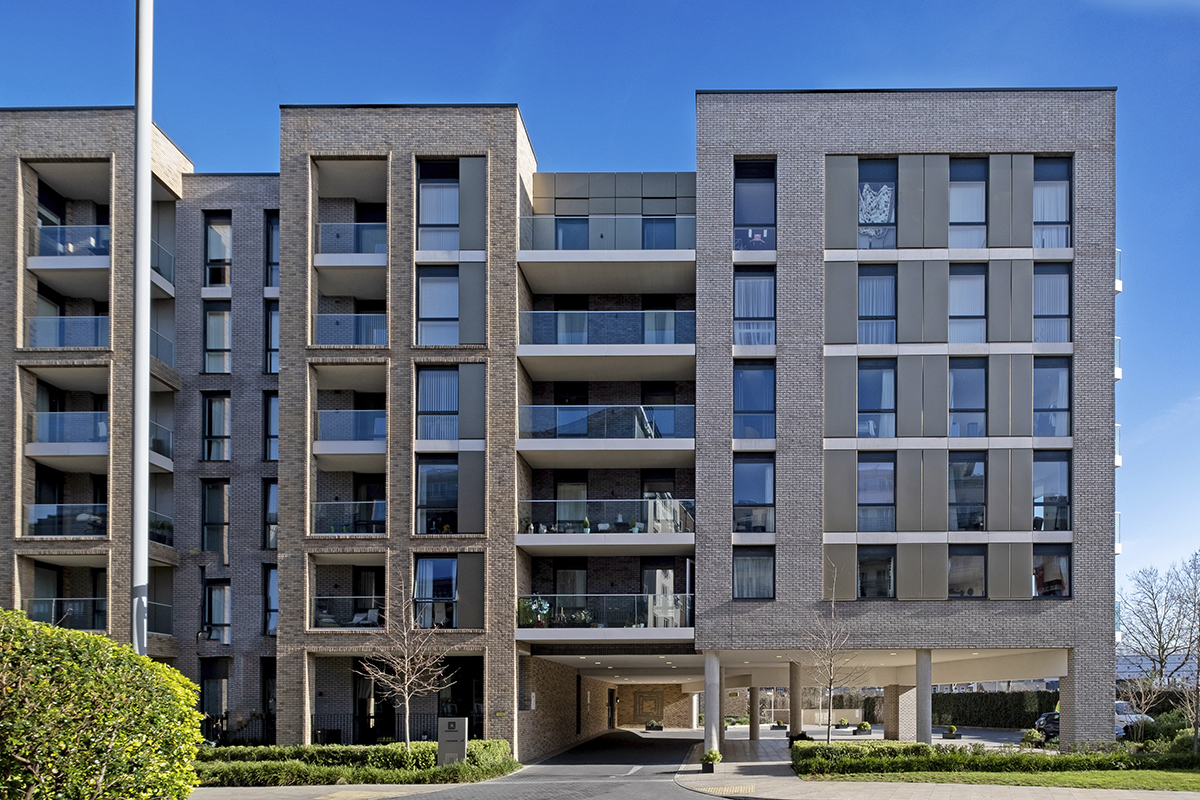You are viewing 1 of your 1 free articles
Private house builders seeking shared ownership deals with housing associations, says boss of for-profit
Private house builders are looking to do deals with housing associations to sell properties previously developed for market sale as shared ownership amid a mounting market downturn, the boss of Heylo Housing has said.
The for-profit provider’s chief executive Andrew Geczy made the prediction as he spoke to Inside Housing about navigating the economic downturn and his outlook for the sector over the next 12 months and beyond.
He said: “I will tell you that with this slowdown happening amid the cost of living crisis, and since the increase in mortgage rates, our conversations with house builders have all increased.
“More house builders want to do more shared ownership deals.”
Shared ownership is the only tenure the for-profit builds and maintains, and the landlord told Inside Housing last month that it currently owns 6,949 homes, and has just over 3,000 shared ownership properties in its development pipeline.
It claims to be the UK’s largest private investor in shared ownership housing.
Deals would involve a private developer selling planned units in bulk to a registered provider, whether for-profit or traditional, who would then advertise them for shared ownership.
Mr Geczy also confirmed that the provider is yet to make a decision on next year’s rent levels, after the traditional sector pledged to cap them below inflation.
The promise to cap shared ownership rents was struck between traditional English housing associations and the government – in exchange for the government agreeing to allow social rents to rise by 7%.
Contractually, shared ownership rents rise by Retail Price Index (RPI) inflation plus 0.5% each year – which this year could have seen rises of 15.7% if providers used the December figure, as some do.
Shared ownership rents are set at 3% of the property value owned by the landlord, divided into 12 monthly payments, so can be very high in high market areas where a buyer owns only a small share.
An uncapped rent rise for a shared owner with 25% of an average three-bedroom house could be as much as an additional £70 per month.
While traditional housing associations will cap rent rises at 7%, for-profit providers like Heylo are yet to decide.
Mr Geczy confirmed that the landlord is still deciding on where a rent cap for shared owners would be set.
He added: “But I still think there’s a strong demand for shared ownership – our shared ownership homes are easily selling two times faster than the normal homes.”
Mr Geczy said he is convinced that shared ownership is the tenure to replace Help to Buy.
He said: “Shared ownership is there to replace Help to Buy because it will keep the market moving by convincing house builders to keep building going forward. And if we can get the service standards right, it’s a perfect tenure for most people.”
Shared owners have previously raised numerous concerns with Inside Housing about the quality of service they have received when it comes to extending their leases, rising service charges and a lack of transparency around repairs and maintenance.
Asked about some of those concerns, Mr Geczy said: “I do think those concerns get overwhelmed by the happiness people experience when they get into a house. When I read our TrustPilot results I see people pleased after moving into a house they thought they couldn’t afford.
“When I see a one-star review, I’ll see how we can do a better job on certain things. But I think the whole industry struggles with resales and staircasing and that’s something I’m working on.”
Heylo was deemed non-compliant with the Regulator of Social Housing’s standards at the end of last year and in breach of its Governance and Financial Viability Standard.
As a result, it has been handed non-compliant gradings – G3 for governance and V3 for viability.
At the time, the landlord said it was “disappointed with this judgement”, and Mr Geczy explained how the landlord did not go through a normal registration process with the regulator.
The for-profit, backed by the world’s largest asset manager BlackRock, was founded in 2017 following parent company Heylo Housing Group’s acquisition of registered provider Three Conditions Limited, and therefore did not go through a registration application to the regulator.
Mr Geczy said: “So I think this was really the first time for them to look at the structure itself.”
He added: “I’m talking to Holmes England around what happens with the next phase of grant with this [governance and viability] rating. But my lenders, my pension funds and insurance companies are still lending us money.”
Sign up for our development and finance newsletter
Already have an account? Click here to manage your newsletters












